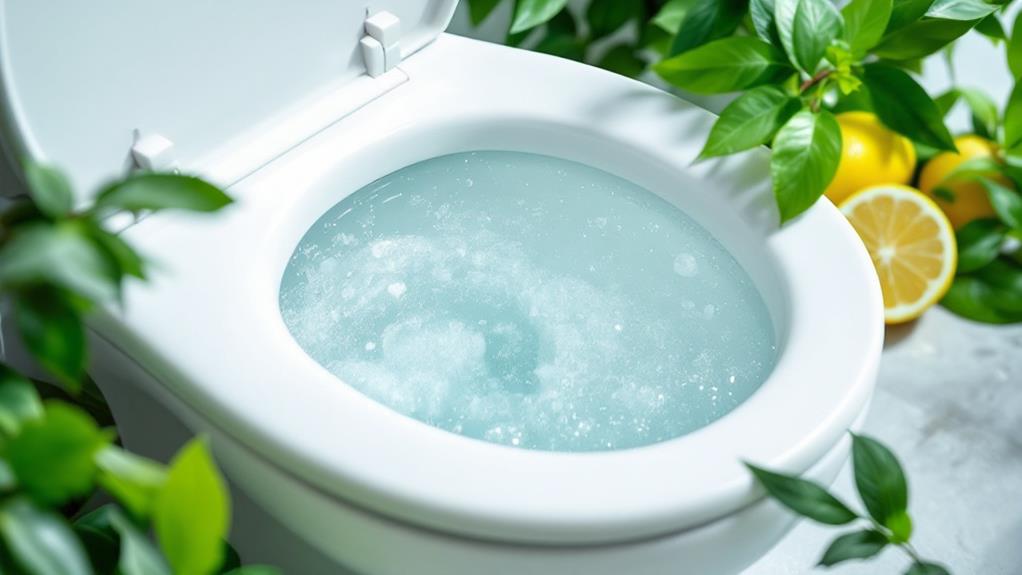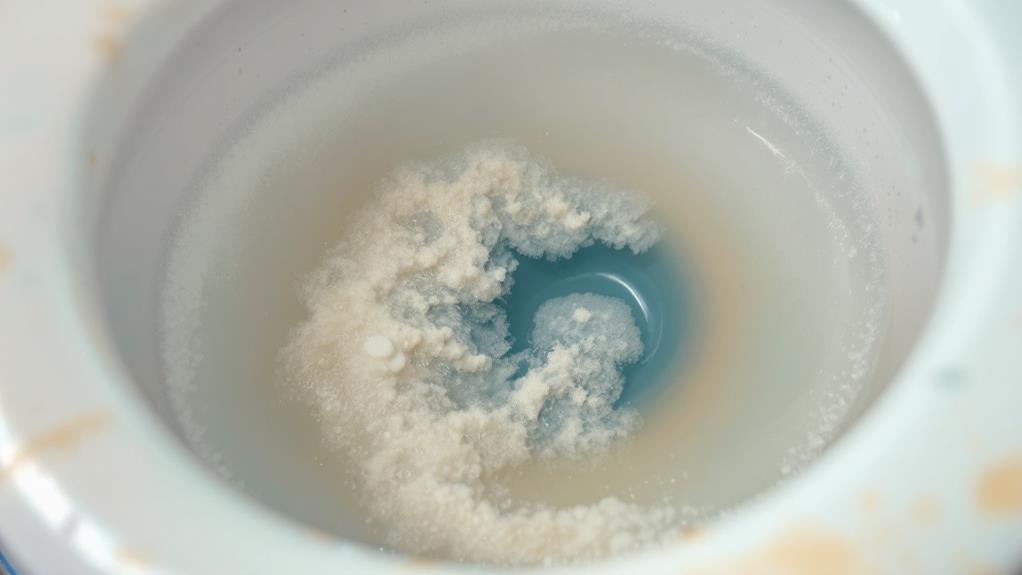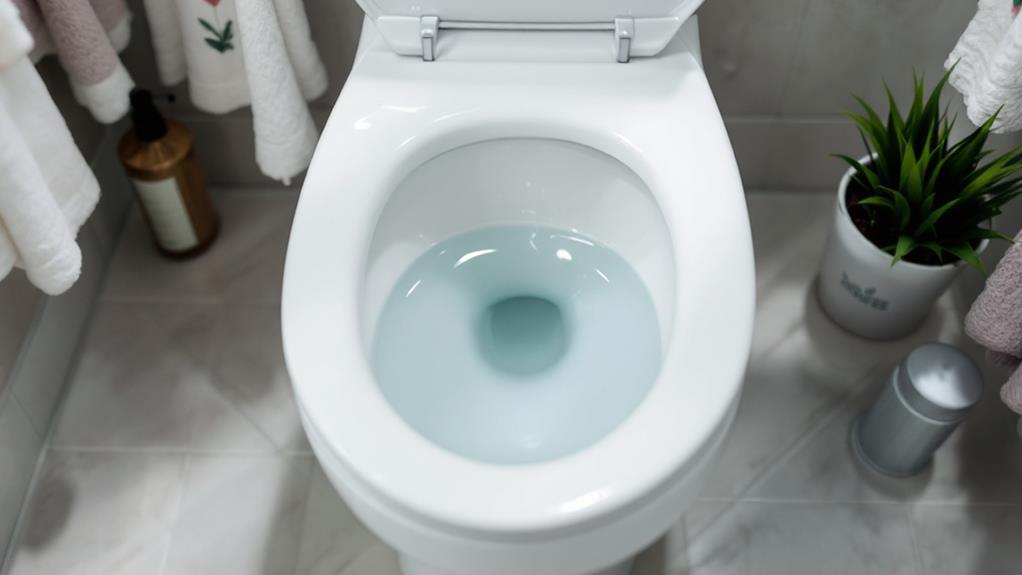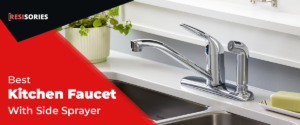Toilet hard water stains can be effectively removed and prevented through a combination of targeted cleaning methods, regular maintenance, and strategic stain prevention strategies. A gentle approach with eco-friendly products like baking soda and vinegar can tackle lighter stains, while more stubborn stains may require steel wool or hydrochloric acid. Daily maintenance is essential to disrupt stain formation, and incorporating mild cleaners into routine cleaning can help. Regular inspections for signs of staining are also vital. By understanding the most effective cleaning solutions and techniques, homeowners can develop a thorough plan to say goodbye to toilet hard water stains for good.
Key Takeaways
Removing Hard Water Stains
Removing hard water stains from toilet surfaces requires a combination of effective cleaning methods and consistent maintenance. Hard water stains can be particularly challenging, but a range of solutions exist to tackle these unsightly marks.
For lighter stains, baking soda and vinegar or borax paste can be effective, with methods to remove hard water stains being easily accessible. For more stubborn stains, steel wool may be necessary, while hydrochloric acid can be used as a last resort.
Daily maintenance is essential to prevent the buildup of hard water stains, including regular cleaning and inspections. By understanding the available methods for stain removal, individuals can effectively combat the negative effects of hard water on toilet surfaces, restoring their porcelain surfaces to their original condition.
Natural Cleaning Methods

The toilet’s porcelain surface is a prime candidate for hard water stains, and employing natural cleaning methods can help mitigate this issue. Eco-friendly products, such as baking soda and vinegar, offer effective and gentle solutions for removing stains. Vinegar benefits include its ability to dissolve mineral deposits and soften water, making it an ideal component in natural cleaning methods.
| Natural Cleaning Method | Effectiveness |
|---|---|
| Baking Soda and Vinegar | Mild, effective for light stains |
| Borax Paste | Suitable for heavier stains |
| Steel Wool | Stubborn stains, use as last resort |
| Daily Maintenance | Prevents buildup of hard water stains |
| Hydrochloric Acid | Chemical solution for persistent stains |
Effective Cleaning Solutions
Hard water stains on toilet porcelain can be effectively tackled with a range of cleaning solutions, each catering to different levels of stain severity.
For instance, commercial cleaners containing hydrochloric acid can be employed for persistent stains, while eco-friendly alternatives like baking soda and vinegar offer a gentler approach for lighter stains.
Borax paste, another effective solution, can be used for heavier stains.
Steel wool, with its fine grain, is suitable for stubborn stains, but requires more physical effort.
When selecting a cleaning solution, it is essential to take into account the severity of the stain and the porcelain’s integrity.
Cleaning Tough Stains

In the domain of toilet bowl maintenance, stubborn stains pose a significant challenge, requiring a combination of effective cleaning strategies and gentle yet assertive scrubbing techniques to overcome their tenacious grip on the porcelain.
Borax paste, steel wool, and hydrochloric acid are viable options for tackling tough stains. Borax paste, made by mixing borax with water or vinegar, should be applied liberally to stained areas and allowed to sit for 20 minutes before scrubbing.
Steel wool, in fine grain form, can be used with water to scrub stubborn stains, while hydrochloric acid serves as a last resort for persistent stains.
Effective stain removal requires a deep understanding of toilet maintenance, including the correct application of cleaning solutions and scrubbing techniques.
Preventing Future Stains

Maintaining a stain-free toilet bowl necessitates adopting proactive measures to prevent hard water stains from forming in the first place. This can be achieved through daily maintenance, incorporating mild cleaners into routine cleaning, and regular inspections for signs of staining.
Daily swishing with a toilet brush disrupts stain formation, while keeping cleaning supplies accessible enables prompt action on emerging stains. Considering the installation of water softeners is also essential in reducing mineral buildup, a primary contributor to hard water stains.
Frequently Asked Questions
When considering bleach to remove hard water stains, exercise caution due to safety concerns and potential porcelain damage. Instead, opt for alternative cleaners like baking soda and vinegar or borax paste, which offer effective and gentler solutions for toilet bowl stain removal.
Hard water stains may indicate underlying plumbing problems, such as mineral buildup or water quality issues, which can lead to further complications if left unaddressed, emphasizing the importance of prompt identification and remediation of these plumbing problems.
To prevent hard water stains, establish a regular cleaning frequency, incorporating daily swishing with a toilet brush, weekly mild cleaning, and monthly inspections to address stain formation, ensuring a stain-free toilet bowl.
Yes, hard water stains can be removed from other bathroom fixtures, such as shower doors and faucet fixtures, using similar cleaning methods, including baking soda and vinegar, borax paste, and mild abrasive materials like fine-grain steel wool.
Not all toilet cleaning products are effective against hard water stains; some may only mask the issue. Effective stain removal requires tailored cleaning techniques, such as baking soda and vinegar or borax paste, and prioritizing stain prevention through daily maintenance and regular inspections.
Conclusion
The removal of toilet hard water stains can be achieved through a combination of effective cleaning methods and preventive measures. By utilizing natural cleaning agents, targeted cleaning solutions, and aggressive techniques as necessary, stubborn stains can be eliminated. Additionally, daily maintenance and proactive steps can mitigate the formation of future stains. Through the implementation of these strategies, toilet hard water stains can be successfully eradicated, resulting in a clean and hygienic toilet environment.






